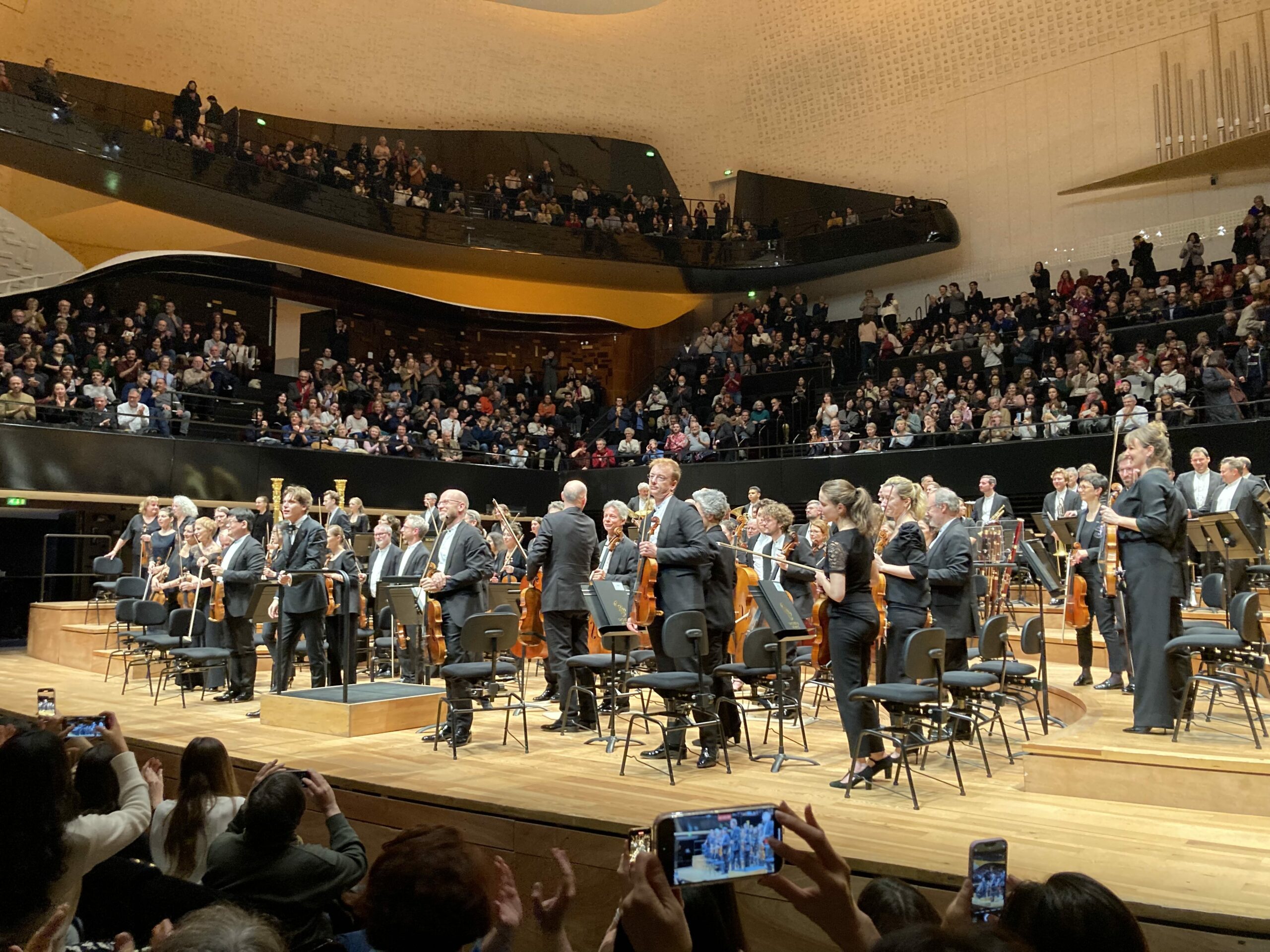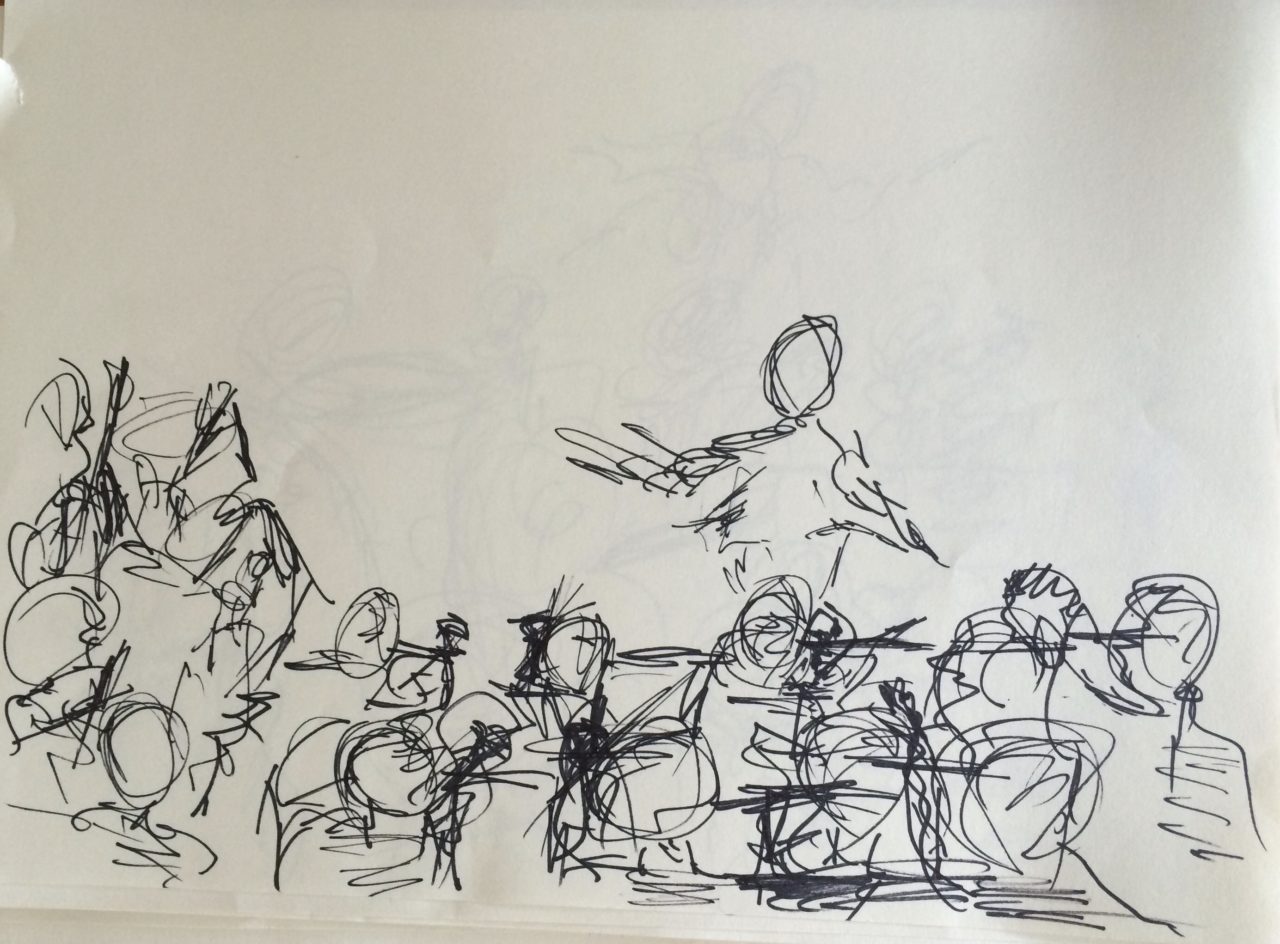Everyone in the classical world seems to have an opinion on news of Klaus Mäkelä being named as the next music director of the Chicago Symphony Orchestra (CSO). The Finnish conductor will end his respective directorships in Paris and Oslo in 2027, and begin prestigious tenures with the CSO and the Concertgebouw in Amsterdam. He will be 31 years old by then, hopping between continents and, one may assume, making guest appearances with various orchestras as well. Since news of the Chicago appointment last week, reactions have been extreme; either Mäkelä (or his agent; or both) are out of depth, out of touch, out for money and in it for the glory; he isn’t serious; jetting in and out implies a lack of commitment! – or he is the lord and saviour of classical, he is especially brilliant live, he is beloved by musicians and audiences alike, he is talented and how dare everyone be so mean!
I am not a fan of hopping on bandwagons of any kind; they’re hot, they’re noisy, they’re airless – but sometimes such rides are required to ascertain the nature of a journey, its sites and stops, instead of looking to one final, ultimate destination. Money is not the final stop here but every bump along the road, with marketing teams and board members steaming up the windows. The people organizations choose as leaders have always been reflections of aspirations related to the artistic, intellectual, organizational, social, communal, as much as to an organization’s history with and around those elements. Leadership must be in a package incorporating all of these things, and be appealing to boards, donors, ticket-buyers, CEOs. Being good at smalltalk is every bit as important as studying scores – it greases the financial wheels, related parts of which are rather squeaky these days. Attendance in Chicago is on the rise, but so is the cost of everything else, with Chicago’s rents roughly 20% above the national average – a fact worth considering; even the CSO’s lowest-price ticket of $35 is well beyond the means of a great many.
Recent upheavals within the city’s theatre scene are, as The Chicago Tribune‘s Chris Jones noted last year, symbolic of a wider problem involving the performing arts sector:
Companies run the gamut from nonprofit, community-oriented, avowedly anti-capitalist organizations with fundamentally social missions focused on political change, to high-cost commercial operations in the very capitalist business of producing profitable live entertainment. Often, their needs are divergent. And the former typically is contemptuous of the latter. (August 17, 2023)
One can make a face that classical music should never bow to commercial considerations, that it ought to be properly (however that is defined) funded by government at all levels – that classical music is so holy it must never bow to such a vulgar consideration, in which case the names Esterházy, Belyayev, von Meck, van Swieten, Coolidge, and various members of European royalty may not mean much. Flap arms about the nature of non-profits as much as you like; organizations need to feel they have secure futures, and they need a suitable figure in which to place those hopes. The cries of “Welcome!” that greeted Mäkelä’s recent appearances in Chicago following the news were obviously sincere, but also likely infused with a needed optimism for the art form as much as the organization and its illustrious history.
Feeling one is a part of that history, and a part of making that history, is attractive to audiences, even if they are largely unaware of the realities that are inherently part of working within the classical industry. Conductors, especially General Music Directors (GMDs), have never had only one job. Coach, counsellor, educator, initiator, glad-hander, poster boy/girl, diplomat, ambassador, peacemaker, activist, attractor of money, pseudo-guarantor of financial health and organizational stability – a few of the roles GMDs must play, in addition to that of leader, interpreter, and scholar of scores. Between the three-letter word “art” and the five-letter word “music” is the real four-letter word: work. Audiences want to feel the GMD is working for them even if they don’t know (or don’t want to know) the nitty-gritty, usually-unglamorous details. Those details involve shaking hands with strangers for hours on end, being agreeable to disagreeable if potentially useful people, coddling insecure players and soloists, courting CEOs of corporations who may know little about music, making appearances at various events, preparing for and partaking in of any number of meetings, creating programs that will be friendly to the box office, and negotiating those programs with a board and any number of administrators who may well think they know better (perhaps they do); the process of recording (and post-production) is a huge beast unto itself.
Such duties must also be negotiated around and within an immediacy digital culture demands, one specifically younger generations understand and (hopefully) respond to. Actual attendance at cultural things may be down but digital engagement is up, and boards are paying attention, relying on marketing personnel to manifest that digital engagement in real ways. As Los Angeles Times music critic Mark Swed recently noted:
Boards! We can’t live with them, and we certainly can’t live without them. By their very nature, they are about money. They keep the institution running. They raise funds. When boards are excellent, they recognize the artistic vision and make miracles happen. But that can take some doing, because by their very nature, they operate by committee. (March 20, 2024)
Committees by their nature tend to have varying degrees of groupthink, an approach which rarely if ever (as Swed wisely notes) courts risk within the musical realm; that, in turn, leads to a perceived need to play to the masses, en masse, and in 2024, that’s social media. So in addition to all their usual duties, MDs of the 21st century are also expected to be online influencers of sorts; cue portraits of said leader in designer turtleneck or crisp shirt, in a well-lit locale, with score open, brow furrowed, wielding a pencil with carefully-manicured fingers, all of it Photoshopped to wipe away bumps, wrinkles, sags, and jowls. The face of the organization, so carefully edited to match digital ideals, is barely human; classical people are, you see, beyond the masses. (This is probably not the consciously intended message but such adherence to unrealistic and ageist beauty standards entrenches popular ideas that tie classical music to a perceived elitism; I may write about this further at some point.) There is a kind of robbery at work when it comes to simply showing the actual people who work in classical, including (or especially) its leaders, the ones who must be the face of the organization, for good or bad.
Sometimes organizations demonstrate a great trust in their leaders, and they, in turn, opt for a touching (and refreshingly untouched) public authenticity. The social media presences of non-digital natives Paavo Järvi and Gianandrea Noseda (GMDs, respectively, of Tonhalle-Orchester Zürich and Opernhaus Zürich) are good examples, as is the Tonhalle’s “Tram For Two” episode featuring the two maestros musing on their shared passions and ideas. Whether the CSO or Concertgebouw will emulate this kind of thing is a mystery. Two people who love and work in music, talking about music and music-making, in all its various angles, unscripted; would groupthink allow it? Will we see Mäkelä in conversation with, say, Enrique Mazzola or Lorenzo Viotti?

Klaus Mäkelä and the L’Orchestre de Paris taking bows at the Philharmonie de Paris, March 6, 2024. Photo: mine. Please do not reproduce without express written permission.
To what extent Mäkelä will be the face of classical music in both Chicago and Amsterdam, and just how that image might be shaped, curated and spun back out to the public, remains to be seen. The open and hotly-debated question of his music choices – whether he will program things that reflect places and related histories, epochs, and demographics while offering a forward-thinking approach – is one that only time will answer. (He would be wise to ask Esa-Pekka Salonen for a few pointers.) Will it be possible to do anything meaningful at either locale, given travel schedules? Is youth an impediment or an opportunity?
I want to stay curious, if also mindful of what I heard at the Philharmonie de Paris last month. Mäkelä led the L’Orchestre de Paris in a programme consisting of Rachmaninoff’s Piano Concerto No. 2 in C Minor, Op. 18 and Shostakovich’s Symphony No. 11 in G minor, Op. 103 (The Year 1905); I came away with highly mixed feelings. The conductor did have a palpable chemistry with soloist Yunchan Lim, and it was special to see the effect that had on the orchestra – but there is nothing wrong with not following the crowd in other aspects (in this case Shostakovich). And as my former music professor Rob Bowman once said, energy goes where attention goes; extending energy to the work of other conductors who are less firmly in the heat of a spotlight seems like a logical choice, one I hope classical music watchers will consider.
In the meantime, it’s time to leave the bandwagon and jump into the clear, cool evening. Remember the c-word.

Jeffrey Levenson
Spot on Catherine. Will the CSO ever hire an American maestro?
Catherine Kustanczy
I’m less concerned with the nationality of maestros than I am with boards being led by sexy marketing (and only that).